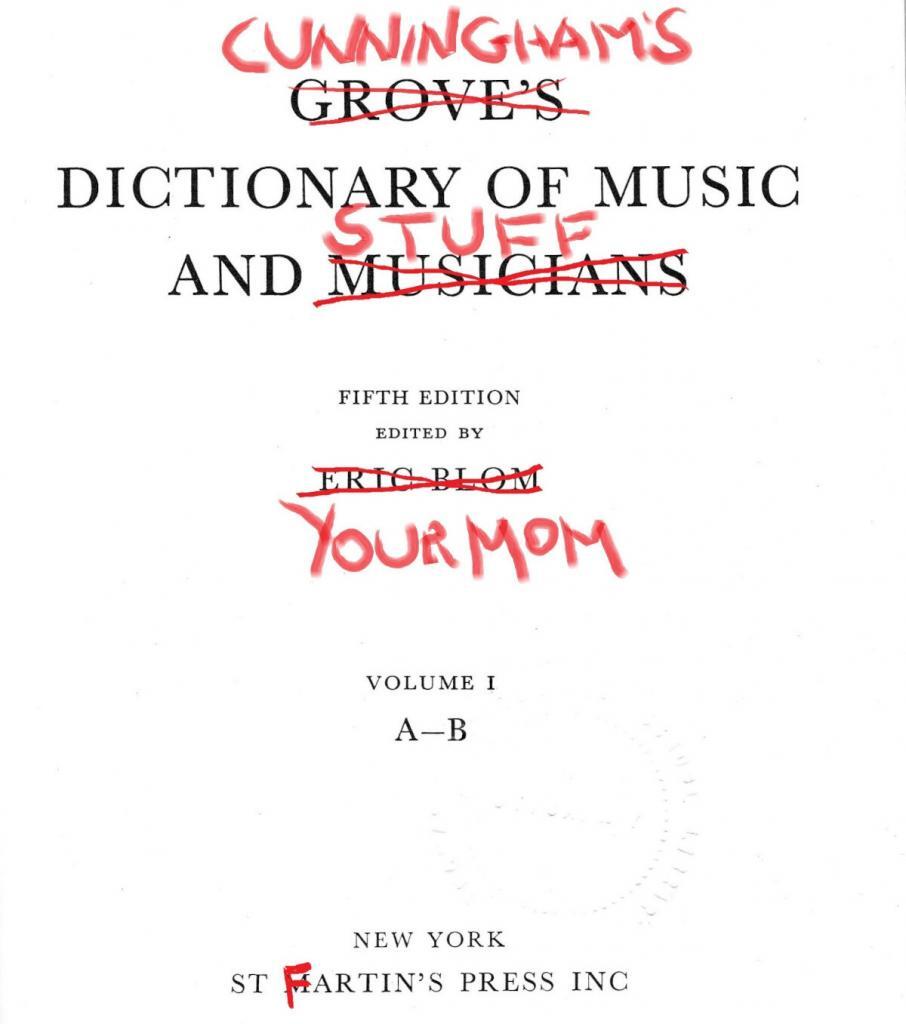The worlds of jazz and classical music are often mysterious to both parties, and sometimes jazz musicians can get overwhelmed with understanding the classical tradition. This can become apparent with the centuries old European musical terminology, still employed in today’s jazz notation.
So as a public service, I have undertaken the task of “translating” some of the most useful classical terms into the world of jazz, for the benefit of today’s working jazz musician. So here we go with the Professor’s Jazz Glossary of Practical Musical Terminology.
Let’s start with dynamics. There are scores of European terms to indicate subtle grades of volume to be interpreted by the performer. Things are not so subtle for jazz bands. In jazz, we can boil it down to a few notable dynamic levels:
fortissimo: the band is drunk
mezzo piano: the band has to read music
piano: bass solo
pianissimo: the band is on a break
And now, continuing with our general Glossary of Terms:
a cappella: when the vocalist calls a tune that the band doesn’t know
accelerando: when the drummer is excited
allegro: how moderato ends up when you have a bad drummer
rallentando: when the drummer is tired
accidental: the wrong notes the trumpet player plays because he had a root canal the day before the gig
atonality: the tuning of most pianos in NY bars
basso continuo: when the bass player doesn’t realize the song has finished
chord: what a piano player plays
broken chord: what a piano player plays on most NY pianos
counterpoint: two jazz guitarists reading the same chart
quarter tone: two jazz clarinetists reading the same chart
chromatic: the scale a trad musician uses when he’s playing modern jazz
descrescendo: when the manager of the club tells you to keep it down
crescendo: when the manager leaves the room
double stopping: when the bass player is late to the gig because the subway was running local
encore: what the band does when they realize there’s still five minutes left in the set
glissando: how trombone players play a run of fast notes
grace note: when you’re not sure if that melody note was an E or Eb so you quickly play them both to be safe
intonation: something you hide with vibrato
key: something a vocalist spends five minutes of stage time figuring out before the start of the tune
lamentoso: the way you play when you regret saying yes to the gig
lento: an Easter gig
modulation: what the band does when the singer starts the song in the wrong key
loco: what your parents thought you were when you told them you wanted to play jazz for a living
ostinato: what the rhythm section does at the start of the tune until the trumpet player remembers the melody
presto: that magical feeling you get when the bandleader produces your drink ticket
prestissimo: the speed at which the band goes to the bar when they get their drink tickets
relative minor: when the guys in the band hit on the bass player’s younger sister
ritardando: coming up to the part of the tune you haven’t practiced
segue: (this one has multiple meanings):
1. When the band can’t remember how the song ends so they go straight into another one
2. The means by which the trombone player gets to the gig coming straight from his mall-cop day job
slur: how the audience member speaks when he approaches the band after a few drinks to tell you he’s a really good singer
subito: the speed at which the band wants to be paid at the end of the gig
timbre: what clarinets would be better used as
transition: when your banjo player Paul now wants to be called Paulenne
tremolo: the sound of a band with a nervous bass player
transposition: when the stage is too small so the drummer has to set up on the floor
virtuoso: how every NY jazz musician describes themselves in their bio
Reedman extraordinaire Adrian Cunningham is the leader of Professor Cunningham and his Old School Jazz Band, based in New York City. Adrian Cunningham was voted in a 2017 Hot House Jazz Magazine readers’ poll the Best Alto Sax Player in New York. His most recent album is Duologue, issued on the Arbors Jazz label. Visit him on the world wide web: www.adriancunningham.com.




















